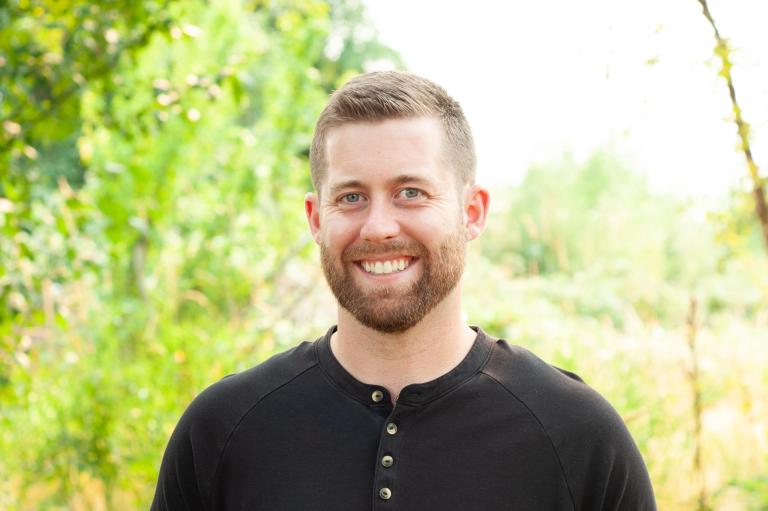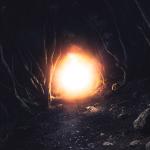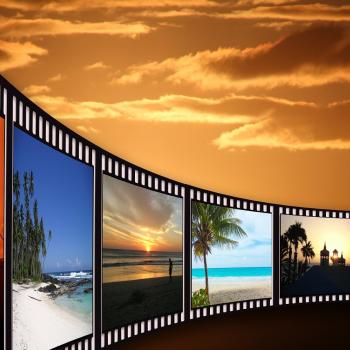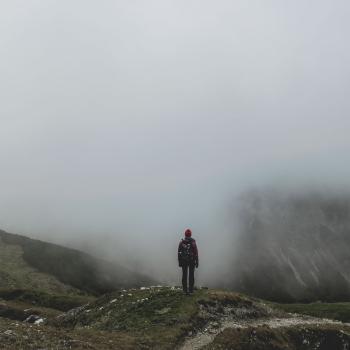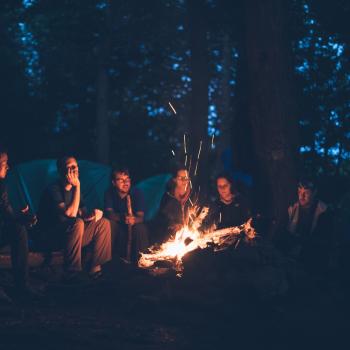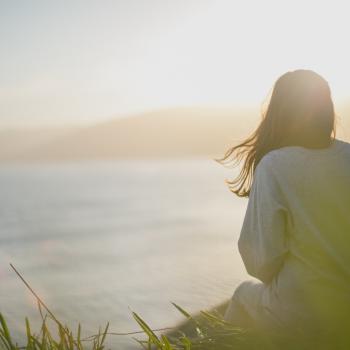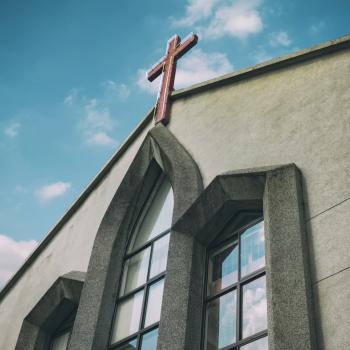A few months ago, I had the immense privilege to write a small piece for Being Human Magazine on what it means for me to behold and honor beauty in our world. It wasn’t long after that when I connected with another brilliant Being Human contributor, Sarah Southern.
Sarah is a powerful and inspiring writer, sharing her stories of doubt, curiosity, creativity, and exploration; in her own words, she says she’s “writing from the spiritual desert where doubt and faith coexist.” Needless to say, I’ve found deep resonance with her writings.
Below is a conversation we had recently about her process of deconstruction and what it has meant for her to honor creativity as a spiritual practice.
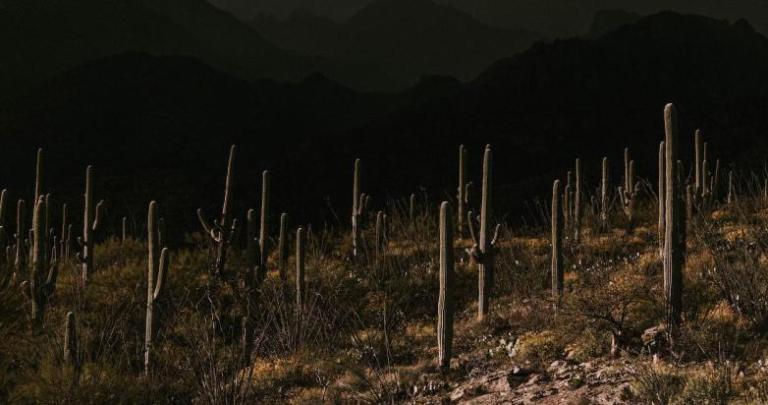
Andrew: About a month ago, you wrote something on Instagram that caught my eye and deeply resonated within me:
“Faith without works is dead. Faith without creativity is lackluster, limited, prosaic.”
I know I’ve felt this in many of the religious community spaces I’ve been in – but also in the quiet moments when my creativity feels evasive and hard to access. How have you experienced creativity as a spiritual practice in your own life?
Sarah: I grew up in a Christian homeschool community where the majority of art we consumed fell in the Christian category; we had Christian radio, Christian theater, Christian movies, Christian books, etc. Everything was separated between Christian and secular and, as result, creative expressions were overt, leaving little room for the viewer to draw their own conclusions or interpretations.
I think this push for literal, unimaginative art stunted deep, uninhibited creativity. We parroted the creators around us and produced similar types of art that spoke clearly to our own theologies and assumed our audience would understand our perspectives.
As I’ve grown and deconstructed my own faith, I’ve realized how stunted creativity affects and informs faith. A lack of creativity in life and art affects the ways we approach scripture and attempt to better understand the rich complexities of an ancient faith. Literalism can lead us to surface level Bible reading, a ticking off of habits that speak more to behavioral management than spiritual formation. True creativity isn’t sameness. Honest faith isn’t perfect agreement, or interactions only in like-minded circles. Sameness dulls our souls because we’re made for far more.
Over the past few years, I’ve tried to spark my imagination and expand my creativity. I’m inspired by that expansion to think beyond the confines of typical or traditional ‘western’ Christian writing and dig deeper, not necessarily providing answers or academic resources, but beauty that I hope leads to truth.
Andrew: That’s beautiful. And I know you’ve written quite a bit about your journey through Christianity: from certainty to deconstruction, questioning, re-imagining. And despite our differences in theological upbringings (I come from a very progressive mainline Christian space), your stories feel very familiar to my own journey.
What questions have been birthed in you that have brought you into the spiritual/religious space you find yourself in today? (Or however you would define the space you find yourself in!)
Sarah: My questions culminated slowly. There wasn’t much room for the asking of questions in the churches or Christian communities I grew up in. Asking questions or voicing doubt seemed like an admittance of failure when everyone else appeared to believe so easily.
As a child, I was consumed by fear like so many children raised within evangelicalism. Thunderstorms sent me into a particular level of anxiety that wracked my body, fueled by a terror-inducing fear of hell. I think the existence of hell may have been one of the first tenets I openly questioned (only to my husband, and that still took years). I didn’t know there were conflicting interpretations and views of the afterlife or realize how much the concept of hell affects evangelism and other aspects of Christianity. Eventually, I realized a fear of eternal torment affected the way I lived.
I didn’t question or say anything that could be deemed “heretical” because I feared the doubting could be the slippery slope I’d been warned about. Working through this allowed me to honestly explore the questions I’d been stifling for years. I was not at risk of hellfire and brimstone for my wandering, doubting, and deconstructing. In fact, God was meeting me in it.
Andrew: Ugh, yes! I love that: God was meeting you in it – in the mystery, the seeming chaos, the questioning, the exploring. And it strikes me that doubting and curiosity and creativity – they aren’t just intellectual! It’s an embodied yearning to touch Truth a bit closer, a bit more intimately. What does an embodied spirituality mean to you?
Sarah: I’m so intrigued with the Hebraic roots of the Christian faith and am becoming better acquainted with the influences of cultural differences on our understanding of God.
I’ve been learning that eastern traditions approach the divine through pictures and stories, rather than just data consumption or concise doctrine and theological statements. I think this is incredibly beautiful and a far more embodied way to grow in our faith. It was never meant to just be memorized tenets or statements or long lists of beliefs, rather a kind of knowing and continued working out that may start in our brains but find reinforcement in nature, questions, art, maturity, and engagement with cultures and perspectives that push against our own.
Spirituality is about community; it doesn’t happen in isolation or (as mentioned above) in the confines of like-minded spaces. To grow in faith requires interaction with others, opportunities to bear witness, hold stories, and learn from the embodied lives of others.
Andrew: I’m deeply, deeply thankful for you and the work you’re doing. If someone wants to support you and your writing, where can they find you?
Sarah:
- My bi-monthly Substack newsletter
- Instagram: @sarahbsouthern
- Twitter: @sarahbsouthern

